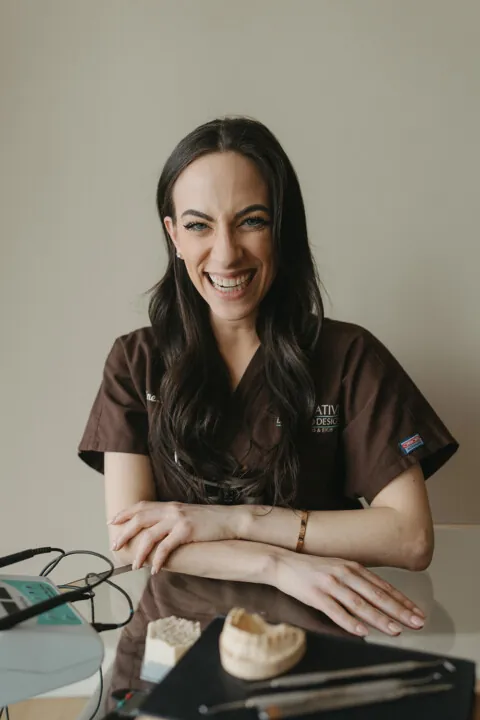Joining a parent’s practice right out of school isn’t for everyone, but it can create opportunities that young doctors won’t easily find elsewhere.
By Elaine Bylis, DDS

Not long ago, children often followed their parents into dentistry. And why not? Children get to join an established business with strong brand equity and ingrained community trust. We also get to benefit from the trusted guidance and mentorship of a parent who wants only the best for us. On the flip side, parents benefit from an injection of fresh energy and ideas from someone who is highly motivated to lead the business into the future.
I totally get that it’s not for everyone. There can be differences between generations about practice mindset and skill sets, or a fear that working together every day might sour family relationships. Sometimes new grads simply want to live somewhere other than where they grew up.
That said, I have a message for young dentists who are lucky enough to have parents who invite them to join their practice: Try to make it work. If it doesn’t, you always have the option of doing a residency after graduation or joining a corporate dental practice to gain experience prior to joining your final dental home. If it does, in my experience, it’s a better path—and well worth navigating any awkwardness of working alongside a parent.
For starters, I was able to build a “private practitioner” mindset. Patients come first, and production (and profits) are an afterthought. Joining a corporate practice straight out of school can create bad habits that you’d need to unlearn when joining a private practice. In the right environment, you can also build procedural speed at your own pace. In addition, I’m unconstrained when it comes to less-traditional treatment modalities and more-conservative treatment.
Another benefit of this mindset is being able to evolve your practice’s brand versus having little say in a brand that is sometimes marred by turnover and volatility. Again, I’m aware that not everyone is so fortunate. I loved joining a practice that already had a reputation for high-quality cosmetic dentistry because that was what I wanted to do in my career. Admittedly, it would have been much harder to join my dad if his existing brand didn’t reflect the kind of dentistry I saw myself doing. Our synergy also frees me up to build the brand by, for example, posting our cases on social media—something my father didn’t do.
Sharing a last name with the owner-practitioner is amazing because it creates a level of trust with the existing patient base.
They know they will continue to receive the same treatment in my hands. It won’t be exactly the same, of course. (My version of our practice will involve more giggling, loud music and dancing.) So if you’re in the increasingly rare position to join your family’s practice, give it some serious thought and maybe even have some difficult conversations before passing it up. There will always be sacrifices involved in building your career, especially when you’re young. But it’s easier if you can choose your sacrifices rather than having them dictated to you. n
ELAINE BYLIS, DDS is half of the father-daughter team at Innovative Dental Design in Glen Burnie, Maryland. She is a magna cum laude graduate of the University of Maryland in neurophysiology and 2017 graduate of the University of Maryland School of Dentistry. She has been a guest lecturer at the Nash Institute and was a member of Incisal Edge’s 40 Under 40 in 2024. Follow her on Instagram @teambylis.


